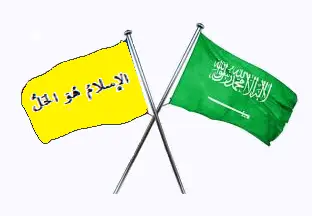Articles divers
© The scientific sentence. 2010

| |
|
Articles
Societies
الإسلاموفوبيا
الإسلاموفوبيا
 في البلاد الإسلامية ، تتناسق الدولة مع رجال الدين وفقًا لسياستها المقصودة الراسخة. في نفس الوقت ، فهي تراقب و تسيطر علي هذا الكهنوت لحماية الوطن ، بالخصوص مواطنيه و مؤسساته ، من الفوضى و الخراب التي يسعى رجال الدين إلى تنفيذها بمجرد استيلائهم على السلطة.
في البلاد الإسلامية ، تتناسق الدولة مع رجال الدين وفقًا لسياستها المقصودة الراسخة. في نفس الوقت ، فهي تراقب و تسيطر علي هذا الكهنوت لحماية الوطن ، بالخصوص مواطنيه و مؤسساته ، من الفوضى و الخراب التي يسعى رجال الدين إلى تنفيذها بمجرد استيلائهم على السلطة.
لكن في بلاد المهجر، غالبا أميركا الشمالية أو الإتحاد الأوروبي، فمن يقرر ومن يحمي المسلم؟
الذي يقرر هو كل من هب و دب من دعاة التيارات الأصولية ، ولا أحد يحميه.
لذلك ، أصبحت بلاد الهجرة أرضا خصبة لنشر و توزيع الفقه الأسود المظلم بلا منازع وبدون أي لا مضايقة.
نتيجةالقوانين المحلية التي أقرتها الأحزاب الحاكمة المختلفة تظل محايدة وغير فعالة. الدليل أن أوضاع المسلم تفاقمت، فانتشر الأرهاب من ناحية , و الإسلاموفوبيا من ناحية معاكسة .
الخوف هو حالة عاطفية عَرَضِيَّة. و الرُّهَابُ يشير إلى الخوف المتكرر الذي يسبب القلق ويؤدي إلى العَداء تجاه مصدر ذلك الخوف. هذا هو مثال الإسلاموفوبيا.
كانت الإسلاموفوبيا متواجدة منذ وجود الإسلام نفسه، تنكشف حتى في البلدان الإسلامية نفسها. و قد أصبح استخدامها متكررًا و مثيرا للجدل منذ بداية هذا القرن.
تتزايد ظاهرة الإسلاموفوبيا بشكل خاص في الدول الغربية المضيفة كلما ازدادت نسبة المهاجر المسلم فيها. إنها تتجلى دائمًا لنفس الأسباب التي ليست عنصرية ولا ثقافية ، ولكن من الواضح أنها دينية فقط.
المسلمون في جميع أنحاء العالم لا يشكلون وحدة متجانسة. كمواطنين في كل البلدان المضيفة ، و من ثقافات مختلفة ، فهم يرحبون بجميع المبادرات الرامية إلى مكافحة الكراهية والتعصب وتعزيز التماسك الاجتماعي والتفاهم الجيد بين المواطنين.
لكن بصراحة ، ما يزعج و يزرع التشويش هو التيار الأصولي الراديكالي . في أول الأمر، علناً ، التيارين الوهابيي و التنظيم العالمي للإخوان المسلمين، المنتسبَيْن إلى فرقة أهل السنة و الجماعة. ثم تأتي فرق مختلفة أخرى ، و لو أنها تدعي الإعتدال في مناهجها.
ليس الفقهاء و الشيوخ و الدعاة من رجال الدين، قادة الإسلام السياسي من شتى التيَّارات الغوغائية، لا يتسامحون مع أي عامل يعزز التماسك الاجتماعي فقط، لكنهم يأخذون بعين الاعتبار ، ويوصون ، ويبشرون ، على العكس من ذلك ، بالتقارير التي لا تؤدي إلا إلى تفاقم التوترات و إبراز المشاعر المعادية للمسلمين.
بكل وضوح و بكل صراحة، ليس الإسلام كعبادة فردية سليمة و روحانية هو الذي يثير عدم ثقة المواطنين الغربيين ، بل الأصولية الدينية ، و تسييس الدين، و رفض الإندماج. و على وجه الخصوص اللجوء إلى طلبات التوافق الديني و الرغبة في تغيير قوانين الدولة العلمانية ، بما في ذلك مما هو مقصود وفيه باطن، و هو تبديل دولة علمانية إلى بلد ديني.
الموافقات الدينية المطلوبة من طرف المجالس القومية للمسلمين ، منظمات تنطق باسم المسلمين، وفي الحقيقة لا تمثل إلا نفسها فقط ، وكذلك تدخلها في المجلس التشريعي ، يشير للغرب أن المسلمين لا يريدون الاندماج في المجتمع المضيف حقا. تسلل الفكر الإرهابي الإسلامي المتطرف إلى بلاد الهجرة يزيد الطين بلة. و هل كل هذه الحقائق تبرر غضب المضيف الغربي عليهم؟
كيف يمكن التخلص من هذا الغضب تجاه المسلمين؟
المسلمون ، كمثل غيرهم ، يدركون جيدًا أن التهديدات الإسلامية الراديكالية ، خاصة من الأنظمة الدينية الأيديولوجية ،هي مصدر نشر النظرة المتخلفة والمظلمة للإسلام. من المؤكد أنه من الضروري على رجال الدين أن يقتنعوا تمامًا بأن الحل سيحصل ليس من خلال تكاثر الامتيازات الدينية ولا عن طريق تعزيز المجتمع الديني ، ولكن من خلال حقيقة تأسيس سياسات الاندماج على القيم العلمانية و الدول الديمقراطية.
في بلاد الهجرة، ليس فقط خلال الحالات الحاسمة، المسلمون لا يريدون التأكيد على الهوية الإسلامية. هم مواطنون من أصول مختلفة ومن ثقافات مختلفة ولديهم صلات مختلفة بالدين والعقيدة. يعتبر أطفالهم مواطنين قبل أي هوية أخرى.
عندما يدرك الأصوليون المهاجرون أن مبادئهم تتعارض مع مبادئ الدولة الحديثة ، وأن الدين ليس في السياسة ، وأنه ليس لديهم خيارسوى أن يصبحوا مواطنين مثل الآخرين ، وأنه من الضروري للغاية أن يقبلوا مبادئ الدولة الحديثة ، وأن عليهم أن يفقدوا الأمل في الحلم بغزو الدول الحديثة لتحويلها إلى دول دينية مدمرة ، وباختصار ، عندما يسقطون ويستعيد الإسلام ممارسته الحقيقية ، وهي مسألة شخصية ، سيجد العالم التعايش السلمي.
عبد الرزاق عجاجة --
الإسلام في أرض الهجرة
ماي 2020
In Muslim countries, the state coordinates with the clergy according to its well-established intended policy. At the same time, it monitors and controls this priesthood to protect the homeland, especially its citizens and institutions, from the chaos and devastation that the clergy seek to implement as soon as they seize power.
But in the diaspora, mostly North America or the European Union, who decides and who protects the Muslim?
The one who decides is both the bear and the bear from the advocates of fundamentalist currents,
and no one protects him. Therefore, the diaspora has become a fertile ground for the unchallenged spread of dark jurisprudence.
The result of local laws passed by the various ruling parties remain neutral and ineffective. The evidence is that the conditions of the Muslim have worsened, and terrorism has spread on the one hand, and Islamophobia on the other hand.
Fear is an episodic emotional state. Phobia refers to a recurrent fear that causes anxiety and leads to hostility towards the source of that fear. This is the example of Islamophobia.
Islamophobia has been around since the very existence of Islam, it is being revealed even in the Islamic countries themselves. Its use has become frequent and controversial since the beginning of this century.
The phenomenon of Islamophobia is increasing in particular in the western host countries as the proportion of Muslim immigrants increases in them. It always manifests itself for the same reasons which are neither racist nor cultural, but obviously only religious.
Muslims all over the world do not constitute a homogeneous unit. As citizens of all host countries, of different cultures, they welcome all initiatives aimed at combating hatred and intolerance and promoting social cohesion and good understanding among citizens.
But frankly, what disturbs and sows confusion is the radical fundamentalist current. At first, publicly, the two Wahhabi currents and the international organization of the Muslim Brotherhood, affiliated with the Ahlus-Sunnah wal-Jama'ah sect, were involved. Then other different groups come, even if they claim moderation in their methods.
Not only do the jurists, sheikhs and preachers of the clergy, leaders of political Islam from various demagogic currents, not only tolerate any factor that promotes social cohesion, but they also take into account, recommend, and preach, on the contrary, reports that only exacerbate tensions And highlight anti-Muslim sentiments.
Clearly and frankly, it is not Islam as an individual, healthy and spiritual cult that provokes the mistrust of Western citizens, but rather religious fundamentalism, the politicization of religion, and the refusal to integrate. In particular, resorting to requests for religious compatibility and the desire to change the laws of the secular state, including what is intentional and intrinsic, which is the transformation of a secular state into a religious one.
Religious approvals required by the National Councils of Muslims, organizations that speak in the name of Muslims, and in fact represent only themselves, as well as their intervention in the Legislative Council, indicates to the West that Muslims do not really want to integrate into the host society. The infiltration of extremist Islamic terrorist thought into the countries of immigration makes matters worse. And do all these facts justify the wrath of the Western host on them?
How can we get rid of this anger towards Muslims?
Muslims, like others, are well aware that radical Islamic threats, especially from ideological religious regimes, are the source of propagating a backward and dark view of Islam. It is certainly necessary for the clergy to be fully convinced that the solution will come not through the proliferation of religious privileges nor by the strengthening of the religious community, but through the fact of establishing policies of assimilation on secular values and democratic states.
In the countries of immigration, not only during critical situations, Muslims do not want to emphasize their Islamic identity. They are citizens of different origins, from different cultures, and have different affinities for religion and belief. Their children are considered citizens before any other identity.
When fundamentalists in the countries of emigration realize that their principles contradict the principles of the modern state, that religion is not in politics, that they have no choice but to become citizens like others, and that it is absolutely necessary that they accept the principles of the modern state, and that they should lose hope in dreaming of conquest of modern states To turn them into ruined religious states, in short, when they fall and Islam restores its true practice, which is a personal matter, the world will find peaceful coexistence.
Abdul Razzaq Ajaja --
Islam in the land of migration
May 2020
Islamophobia. Summary from the third chapter of the book
Islam in the Land of Migration.
|
|